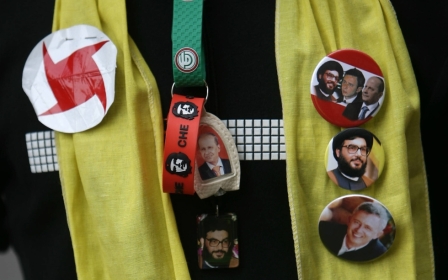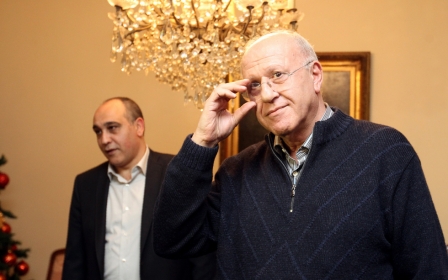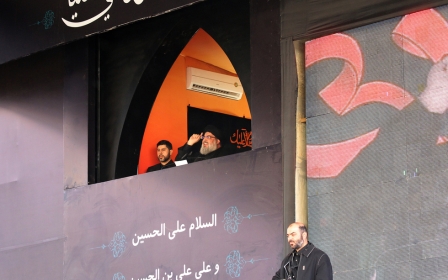Aoun wins backing for Lebanon presidency after surprise U-turn

In a surprise reversal, a leading Lebanese politician on Monday endorsed the presidential candidacy of a rival, Michel Aoun, potentially defusing an 18-month crisis over the post.
Samir Geagea, whose party belongs to a Western- and Saudi-backed political bloc, said he would support Aoun, whose party is allied with Shia movement Hezbollah for the presidency.
"After lengthy study, reflection, discussions and deliberations by the executive body of the Lebanese Forces, the Lebanese Forces announces its endorsement of General Michel Aoun's candidacy for the presidency," Geagea, the LF leader, told a news conference on Monday.
He said the endorsement was aimed at "emerging from where we are now to a safer position", in reference to the country's lengthy presidential void.
The endorsement came despite the bitter rivalry between the blocs to which Geagea and Aoun belong, which has been exacerbated by the war in neighbouring Syria.
Geagea's bloc broadly backs the uprising against Syria's President Bashar al-Assad and opposes Damascus's influence in Lebanon.
Aoun by contrast is allied with Hezbollah, which is backed by Iran and has fighters in Syria bolstering Assad's government.
Geagea and Aoun, both Christian leaders, also have a tense personal history, having fought on opposite sides during parts of Lebanon's 1975-1990 civil war.
Geagea and his political bloc had fiercely opposed Aoun's candidacy, which Hezbollah backed, and the stalemate left Lebanon without a president since Michel Sleiman's mandate expired in March 2014.
Geagea said his endorsement was motivated by the damage caused by the vacancy, and he said he and Aoun had agreed on a series of points, including preserving the independence of Lebanon's foreign policy.
Lebanon has officially maintained a policy of "disassociation" from Syria's conflict, despite the involvement of Hezbollah in the war.
Geagea urged his political allies to support his endorsement, however several of them are unlikely to do so, making it uncertain whether the about-turn will add up to sufficient votes to see Aoun elected.
Lebanon's president is elected by parliament, and the post is always reserved for a Maronite Christian under a powersharing agreement.
The post of prime minister is reserved for a Sunni Muslim, while the speaker of the parliament is a Shia Muslim.
New MEE newsletter: Jerusalem Dispatch
Sign up to get the latest insights and analysis on Israel-Palestine, alongside Turkey Unpacked and other MEE newsletters
Middle East Eye delivers independent and unrivalled coverage and analysis of the Middle East, North Africa and beyond. To learn more about republishing this content and the associated fees, please fill out this form. More about MEE can be found here.




